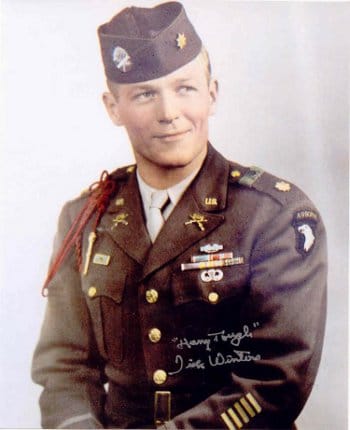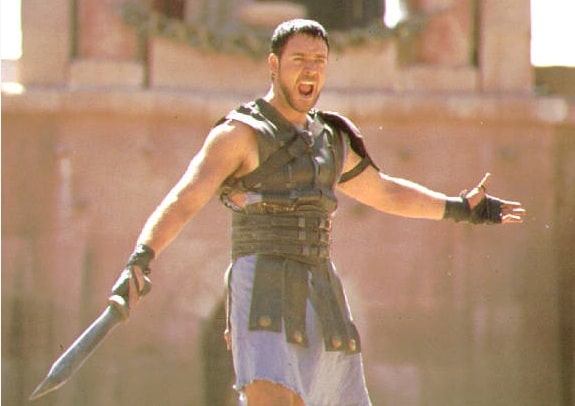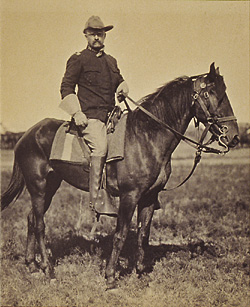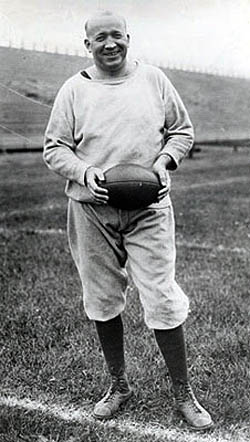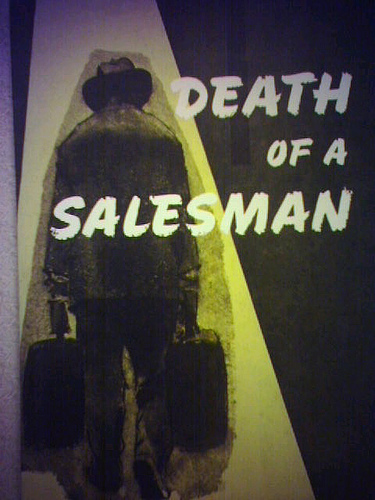I was hiking down a steep trail near Macy Falls when a cougar snarled and leapt toward my left ear.
I remember the date exactly. It was Saturday, May 14, 2011, and the beast lunged from behind me and above. I spun to glimpse yellow fur and fangs heading straight toward my face. The brute bounced off my shoulder and hightailed it into the forest.
That’s when the real problems began. Knocked off kilter, I scrambled to keep my balance on the narrow trail. To my right was a 75-foot drop onto rocks at the bottom of the falls. My feet slipped and I crashed to my side, hands flailing at weeds.
This was cougar country. One had been spotted only a week earlier. But now, having caught my balance again, I could see more clearly in the distance that the beast that had barreled into me wasn’t a cougar after all. It was just a big stupid dog. It was off-leash on an on-leash trail, and charging recklessly through the undergrowth.
The dog’s owner rounded a bend. A jogger, he offered a casual head nod my direction and whistled for Fido.
That’s when my mind snapped.
Instantly, I was caught in a blind fury—one of those ferocious road-rage-type of angers. The carelessness of the man! The arrogance! I scrambled to my feet, shouted the worst profanity that flashed through my mind, and charged up the trail. The irresponsible dog owner was already around the next bend, but all I could think was to catch up with him and exact revenge. I wanted to hit the man.
I literally planned to break the dog owner’s nose with my fist.
Hang onto that scene for a moment, will you? Hang onto it, and ask yourself if you’ve ever been in a similar predicament, where you’ve lost your cool.
It happens to the best of men. An emotion enters your body so strongly that it actually takes charge. You stop thinking logically and respond with a knee-jerk. You act from your gut, not your rational mind.
Often, we berate ourselves for losing our cool. That’s the only response we can think of, because it’s our default, the one we use most frequently on ourselves. We talk to ourselves with an inner voice of disapproval. We tell ourselves to snap out of it or to stop being such an idiot. We chide ourselves to get control, toughen up, or to not let ourselves get so bent out of shape.
But, really, there are two better questions that a self-aware man needs to ask himself in these times. The first is how to act appropriately during those times of intensity. The second is the trickier question, yet in many ways the more needful one, and the question we examine in this article.
It’s why.
See, your intense response is only a symptom of a deeper stressor within you. By asking why you are acting so intensely, you dig to the cause. And then you can address the real reason for the intense behavior, and solve the deeper issue.
Getting to the cause is key. There’s an explanation why your gut has provoked you to take this type of action. There’s wisdom within your gut’s response. And your wise gut—however irrational, out of character, or strange a behavior it’s provoked—needs to be listened to.
In other words, trust your gut.
Let me explain this idea further, this idea of trusting your intuition even if it provokes you to extreme action, and let me do so by using a war story.
In early February 1945, the men of E Company, 506th PIR, 101st A/B, (the elite company of paratroopers commonly known as the Band of Brothers), came off the line in the frozen forests near Bastogne and were sent to hold the line at Haguenau, a 20,000-resident-city that sat astride the Moder River.
Usually the city sat within French borders. But Germany had seized it a few years earlier and had clutched it throughout WWII. Allied troops retook it in early 1945. They camped in the town on one side of the river, while enemy troops camped on the other.
Sporadic shells flew across the Moder River, but other than that, not much action was seen in Haguenau during that time. Both sides knew that the war was winding down, and the biggest thought of the Allied veterans, at least the ones I’ve interviewed, was cautious hope. Maybe they were actually going to make it through the war alive. Nobody wanted to do anything stupid.
In mid-February, 1945, Colonel Robert Sink, the respected and capable commander of the 506th PIR, ordered his men to conduct a small combat patrol across the river to capture enemy prisoners for interrogation.
It was no easy task. It meant about 20 men needed to silently paddle boats across the river at night, advance upon a well-defended position with established fields of fire, capture enemy troops alive, then bring the prisoners back to headquarters for questioning.
The patrol worked. Under the cover of darkness, the men slipped across the frosty river, blasted into the enemy fortifications, snatched two Nazis, and came back triumphant. But the price for the allied troops was costly: Private Eugene Jackson, age 19, took grenade fragments to his face and head.
His friends rushed him back across the river. Jackson was bleeding heavily, crazed with pain from a piece of burning hot metal lodged in his skull, and screaming, “Kill me! Somebody kill me! Oh Christ, I can’t stand the pain!” He twitched for 20 or 30 feet but died before reaching the aid station.
There was another complicating factor that the vets I’ve interviewed all point to. Overall, the mission was pretty much useless. What sort of important, war-changing secrets were two random German soldiers going to disclose under interrogation? That they’d had cold coffee and stale bread for breakfast? That’s why the next day, when orders came from upper brass that an identical patrol was planned for that night, the men were downright furious.
A second patrol? Why?!
Compounding problems was that an icy snow had fallen overnight along the river. The enemy would be able to hear the allied troops coming a long way off. It was a suicide mission with no strong benefit. But orders were orders.
Acting on Colonel Sink’s command, Captain Dick Winters was in charge of organizing the second patrol, just like he had the first. Winters told the men to be ready at the assigned hour.
The men all ten-hupped when Winters met them in a dank basement of an abandoned house to go over details. The captain returned their salute, took off his helmet, and rubbed his forehead with his hands.
“Here’s what I want you to do,” Captain Winters said in a husky whisper. “Get some sleep. In the morning you will report to me that you made it across the river but were unable to secure any live prisoners. Understand?”
A few eyebrows lifted. A few grins twitched. “Yes sir,” someone finally said.
The second patrol never happened. Captain Dick Winters had his reasons. Good, logical, well-thought out reasons. But the move also contained traces of wild irrationality. Of going against sound character. Winters, one of the finest fighting men of WWII, was directly disobeying an order. He wrote out a bogus report and presented it to Colonel Sink.
You need to realize how serious this was.
Not only that, but if Winters’ men were grumbling about going on another mission, you wouldn’t expect a wartime captain to respond with compassion. You’d expect the captain to tell his men to toughen up—that’s what normally happened in the military. An officer would berate his men for grousing in the face of duty. He would talk to them with a voice of disapproval and tell them to snap out of it and get on with their work.
But Winters did none of that. He was able to step back and see the bigger picture. He saw that there was deeper and wiser reasoning that needed to be heeded.
Winters’ actions can be summed up by one phrase …
He trusted his gut.
Okay, let’s return to the first story, my severe fury on the trail to Macy Falls. Here’s how it played out.
There I was, running after a dog owner, getting ready to hit him. My strong knee-jerk reaction, uncharacteristic of me, was a pointer to some deeper truth within me. I was overly angry, and there must have been a reason. That’s what my gut was trying to tell me. And that deeper reason is what I needed to dig to if I was ever going to move forward.
Deep down, this is what was truly happening in my life:
The date is key. I remember the date exactly because a week earlier, on Sunday, May 8, 2011, my sweet wife had miscarried. The date of the miscarriage acted as a double whammy. It proved to be the most horrible day a miscarriage could happen to any woman.
Mother’s Day.
And the name of the place I was hiking to—Macy Falls—that also was key. It’s a name that can’t be found on any map.
See, these falls had become a special place for me. Weeks earlier, when my wife was still pregnant, I had hiked to this place of beauty to think through naming our daughter. And “Macy” was one of our top choices.
When Macy’s birth was no more, I had named the falls in her honor. I had named them only to myself. And I was hiking to the falls—this sacred place of remembrance—to grieve.
That’s why the dog barreling into me was such a jarring interruption. That’s why I snapped with such fury—because I was operating on backlash. And that’s why the dog owner, while surely needing to take responsibility for his dog, absolutely felt a disproportionate amount of my wrath.
That’s what my gut was trying to tell me.
That I was deeply shaken.
Instead of berating myself, I needed to have compassion on myself, listen to what was going on inside me, and respond accordingly. Maybe that would be fury. Just so long as I didn’t break the other guy’s jaw.
Instead of telling myself to “toughen up,” I needed to call off the second patrol.
Fortunately, there are two happy endings to the Macy Falls story.
The first is that when I caught up to the dog owner on the trail, we were able to have a good, sound discussion, not a fist fight. I asked him to keep tighter control over his animal, which he agreed to, and I apologized for unleashing a string of profanity, because that’s not how I want to treat any man. We were neighbors, after all, neighbors in the same journey of humanity.
The second is that my wife and I, although greatly saddened, weren’t destroyed by those difficult experiences with the miscarriage. We continued on. But I’ll save that story for another article.
The bigger question is how will you respond the next time you find yourself acting out of character.
Maybe you find yourself swerving around another driver on the freeway while flipping him the bird. That’s not like you, normally. So, do you scold yourself later for being such an idiot, or do you ask yourself what’s truly going on? Why are you so on edge that someone can push you to act so dangerously?
Maybe you find yourself lashing out at your wife or best friend. You love this person, but still you’re harsh. Do you call yourself names and go get drunk in an act of self-destruction? Or do you probe deeper and ask why?
Maybe you normally safeguard your life online. But in a moment of illogic, you make a split second decision and click on a site filled with garbage. Afterward, you may be filled with self-loathing. But will you also go beyond that to peel back the layers to discover the real motivations for this uncharacteristic behavior?
That’s what your gut tells you. It points to what’s truly happening in your life.
Listen to its voice.
Your gut is wiser than you think.
Do you typically trust your gut or ignore it? When was the last time you acted out of character, and how did you respond to yourself afterward? Upon reflection, what was the real reason you were acting so intensely?
_______________________
Marcus Brotherton is a regular contributor to Art of Manliness. Read his blog, Men Who Lead Well, at: www.marcusbrotherton.com




